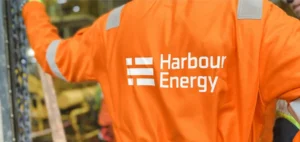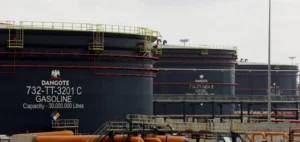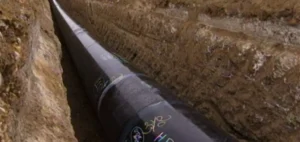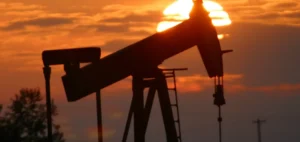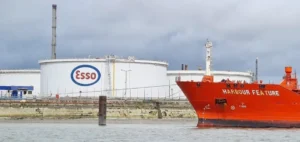The oil exploration permit recently granted by the Congolese government to China Oil Natural Gas Overseas Holding United is generating considerable controversy. Located in south-west Congo, Conkouati-Douli National Park is one of the ecological gems of the Congo Basin, home to endangered species such as western lowland gorillas, chimpanzees and forest elephants.
Opposition from NGOs and International Alerts
Since the announcement of this permit in January, reactions have been lively. Greenpeace Africa and U.S.-based NGO Earth Insight voiced their firm opposition, arguing that this decision runs counter to the Republic of Congo’s international commitments to environmental protection. Earth Insight has published a study detailing the ecological risks of this exploration, pointing out that the destruction of this habitat would jeopardize not only local biodiversity but also the livelihoods of the thousands of villagers who depend on the forest. Greenpeace Africa had already protested against this decision in February. In June, a coalition of a dozen Congolese civil society organizations also called for the permit to be withdrawn. They pointed out that the granting of this permit contravenes Congo’s wildlife and protected areas law, and called for international conservation funding to be suspended until the permit is cancelled.
Environmental and social impacts
Conkouati-Douli National Park is a vast territory of over 5,000 km² on the border with Gabon, combining coastal, maritime and forest ecosystems. This region is not only crucial for preserving biodiversity, but also plays a vital role in maintaining local ecosystem services. The rainforest in this region is considered one of the planet’s most important carbon sinks, helping to regulate the global climate. Local communities, who have lived in harmony with this forest for centuries, risk seeing their livelihoods destroyed by oil activities. Earth Insight, in its press release accompanied by detailed maps, highlighted the critical areas that would be affected by drilling. Such exploitation would endanger not only local flora and fauna, but also the culture and economy of indigenous communities.
International Pressures and Reactions
International pressure is mounting on the Congolese government to cancel the permit. Greenpeace and other NGOs have called for a halt to European and French funding for conservation activities in the park until this decision is reviewed. These organizations stress the importance of respecting Congo’s commitments under international environmental protection agreements. For the time being, the Congolese government remains silent in the face of these repeated appeals. There has been no response to media enquiries, and the Congolese authorities have yet to state their official position on the matter.
The future of Conkouati-Douli National Park remains uncertain as pressure from NGOs and the international community intensifies. This situation highlights the complex challenges of natural resource management in ecologically sensitive regions. The need to reconcile economic development with environmental preservation is becoming increasingly crucial, not just for the Congo but for the planet as a whole.











